Wood Float vs Metal Float: Which One Should You Use?
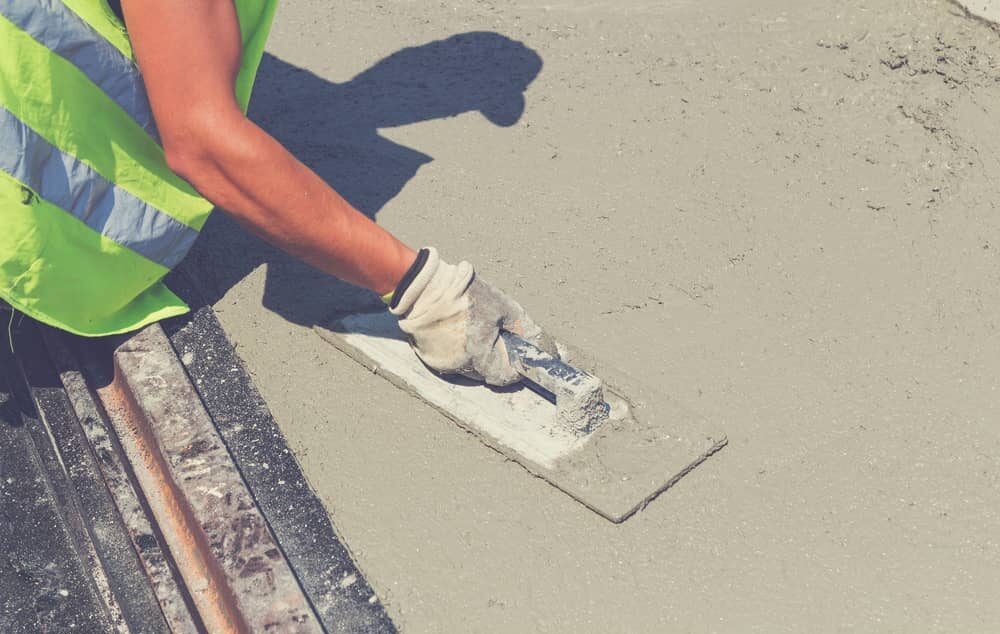
Having the right tools for the trade is very important in the world of concreting, especially if you want yours to have a professional look and feel. Forgo quality concreting hand tools, and your concrete may be uneven, patchy, and more prone to cracking which can be dangerous when people are walking, riding or playing on top of it!
The humble float is a small tool, but its importance to the concreting process cannot be overstated. When it comes to choosing one, timber and metal are two of the most common materials they are made out of–so which one is ideal for your project?
This blog will explore the properties of wooden and metal floats to help you decide.
How are Concrete Floats Used in Melbourne?
Before we delve into their materials, let’s quickly cover what these tools are and how they’re used.
Concrete floats come in two forms the smaller hand float (which is what we’ll be discussing primarily in this blog) and the larger bullfloats. They consist of a long, narrow piece of material (made from the metal or timber in question) and either a handle or a long pole for utilising it with.
Floats are used after the concrete has been poured and flattened using a concrete screed. While the screed will get your concrete flat-ish, a flat is vital for smoothing out any small bumps that may be left, extending your smooth concrete to the edge of your project, and for removing bubbles that could otherwise cause pits in your concrete once it hardens.
Everyone working with concrete will need to have either a bullfloat (for larger projects) or a hand float in their toolkit–one of each certainly won’t hurt!
You can learn more about using bullfloats in our blog, ‘Top 5 Benefits of Using a Bull Float for Concrete Smoothing’.
Timber Floats: The Textured Choice
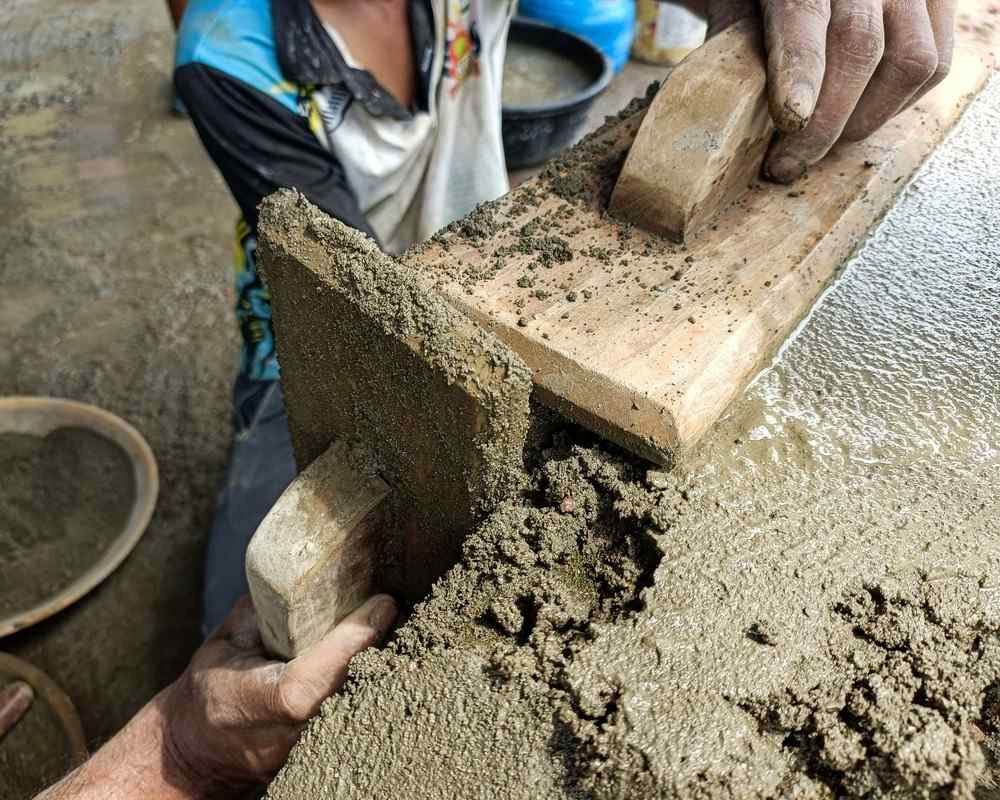
Let’s begin with timber floats. Often made from hardwood, these floats are often used for outdoor projects, like in the creation of footpaths, small driveways, patios, and pool surrounds. This is because they tend to create a more textured surface that is naturally gripper and slip-resistant than perfectly smoothed concrete.
Wood floats in Melbourne are quite affordable when compared to floats made from other materials, although you may find certain types of wood heavier to use than lighter metals like aluminium. Their ability to ‘rough up’ drying concrete can be helpful if you find your concrete is setting too fast, as they can help bring any moisture deep in the concrete to the surface.
They are also the float of choice if you want to add some dry shake coloured concrete hardener to your project. By opening the pores of the concrete with a timber float, you can really work the colour into the surface and make sure it is spread evenly, giving you a consistent spread of your chosen hue.
Wooden floats can absorb moisture and lose their edge if they’re not used carefully and cleaned correctly. However, when maintained and protected before and after use, you’ll find they’re a worthy addition to your concrete tool supplies.
For more ways to colour your concrete, explore our concrete colour supplies page!
Metal Floats: Smoothing Superiority
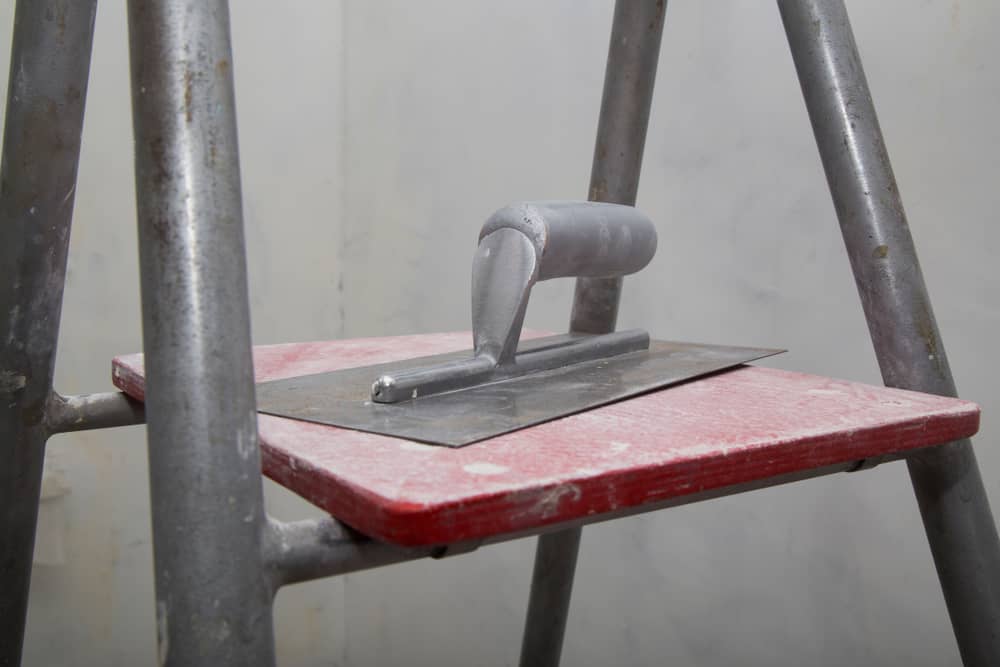
The waterproof, silky smooth surface of metal floats makes them the first choice tool for many professionals seeking a smooth, compact finish for their concrete projects. You’ll find that many concrete tool suppliers in Melbourne sell hand floats made out of the following three metals:
Steel
This is the heaviest metal you’ll see hand floats made out of, and it does a great job of compressing the top layer of your screeded concrete and making it strong and durable, with no pits or holes.
Because it is so effective at closing the pores of your drying concrete, it’s important that you let all your new slab’s bleedwater evaporate before using a steel float. If you don’t, the water will be trapped and could cause your concrete to split in the future.
Aluminium
In contrast to heavy steel, aluminium floats are reasonably light and suitable to use for longer periods of time. These floats are also pretty strong, making them the true middle ground between steel and magnesium.
If you’re going to get one type of hand float for all your work, you won’t get anything super special out of aluminium, but nor will you be missing out on any vital features–consider it the jack-of-all-trades option!
Magnesium
Many workers prefer magnesium for its supreme lightness, even though it’s not quite as durable as magnesium or anywhere near that of steel. It allows you to work comfortably for hours on end without your hands, wrists and arms getting sore.
As long as you take care of your mag float (which means not letting concrete dry on it and preventing it from getting banged up by using and storing it carefully), you’ll find this lightweight float quickly becomes one of your favourites!
Choosing Your Float
It’s time to choose your float, so will you go with one made from timber or metal? Let’s weigh up the factors that you need to consider:
- Am I adding coloured concrete hardener to my project? If so, you will need to open the pores of the concrete to make it receptive to the colour you want to apply. This means a rougher float, like one made from wood or resin (which we’ll touch on soon), will be more appropriate.
- Will I be working on my slab for a long time? If your concrete project is large or has a lot of areas that need smoothing out, you might want to avoid a heavy float made of steel. Or, look into a large bullfloat that makes smoothing bigger slabs much easier!
- What is my budget to spend on a hand float? Wood is more affordable but needs more upkeep; otherwise, you’ll be replacing it quickly. On the other hand, magnesium floats can be pricier, but are longer-lasting.
If you have answered these questions and are still unsure, talk to experienced concrete tool suppliers in Melbourne, like those at Australian Slate Crete Supplies, and we’ll give you an honest recommendation on the best float for your job.
You’ll need more than just a float for your concert! Check out our huge supply of concrete hand tools to find everything you need under one roof.
The Concrete Float Questions Melbourne is Asking
1. How do I clean my concrete float?
The key to keeping your float clean is to prevent any concrete from drying on it. Shake off any loose dirt first, then scrape off concrete remains with a scraper or suitable blunt blade. Finish by wiping your float with a damp cloth, and make sure it is dry before storing it away.
If concrete manages to dry on your float, don’t panic and try to scratch it off, as you may damage the tool. Instead, use the correct acid or concrete cleaning product to get the job done. Explore our acids and cleaning chemicals page for more information!
2. Is floating concrete necessary?
Yes it is, no matter how good a job you think you’ve done with a screed! Not only does floating get rid of the small bumps and dips that can lead to chips later on, but it’s an important part of removing any bubbles inside your concrete that, if left alone, may rise, pop and leave behind tiny pits that are prone to cracking and weakening your slab later on.
3. How long after pouring concrete do you float it?
There is no exact time, as it will depend on the temperature and humidity of your work area, as well as how thick the slab is. Keep an eye on your concrete after it has been screeded and wait for most of the bleedwater to disappear and for it to become more matte, as opposed to shiny.
4. What other materials can floats be made from?
We’ve covered most of them, but floats can also be made from one final material–resin. Resin floats are very similar in their effect to wood floats, with an ability to create a rougher surface, but they are superior in their durability and weight. This is reflected in their price, though, making them less affordable than their timber counterparts.
Australian Slate Crete Are Your Premier Concrete Tool Suppliers
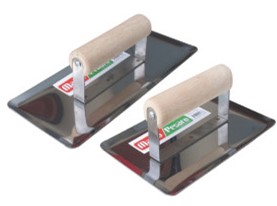
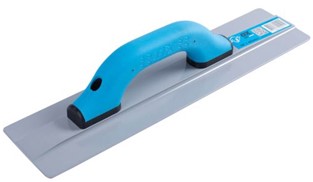
Source: Aus Slate Crete Supplies Stipple – Timber Handle MP & Mag Float
No matter if you want a metal or timber float in Melbourne or far across Australia, you can find one at a great price right here! Australian Slate Crete Supplies is a leader in the DIY and decorative concrete industry, and has been supplying customers across the country with quality concrete hand tools for over 25 years. Whether you’re a first-time concreter or an experienced pro, we’ve got the supplies you need for a successful finish.
Call us on 03 9408 7722, email sales@australianslatecrete.com.au, or use our online contact form to leave us a message to chat about our supply of metal and wood floats in Melbourne. You can also visit our Victorian store in Epping for hands-on assistance from our friendly team.
-
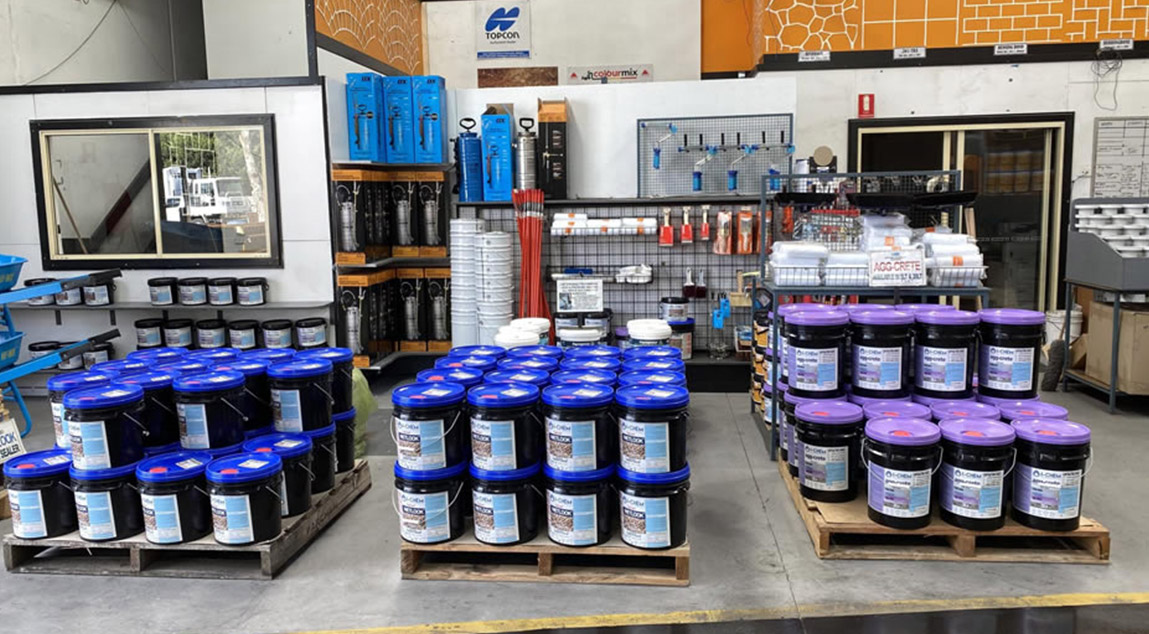 February 4, 2022Sandstone Concrete Stencil
February 4, 2022Sandstone Concrete StencilDo you want to add a touch of luxury and elegance to your concrete projects? If so, then consider using sandstone concrete stencils!
Read More -
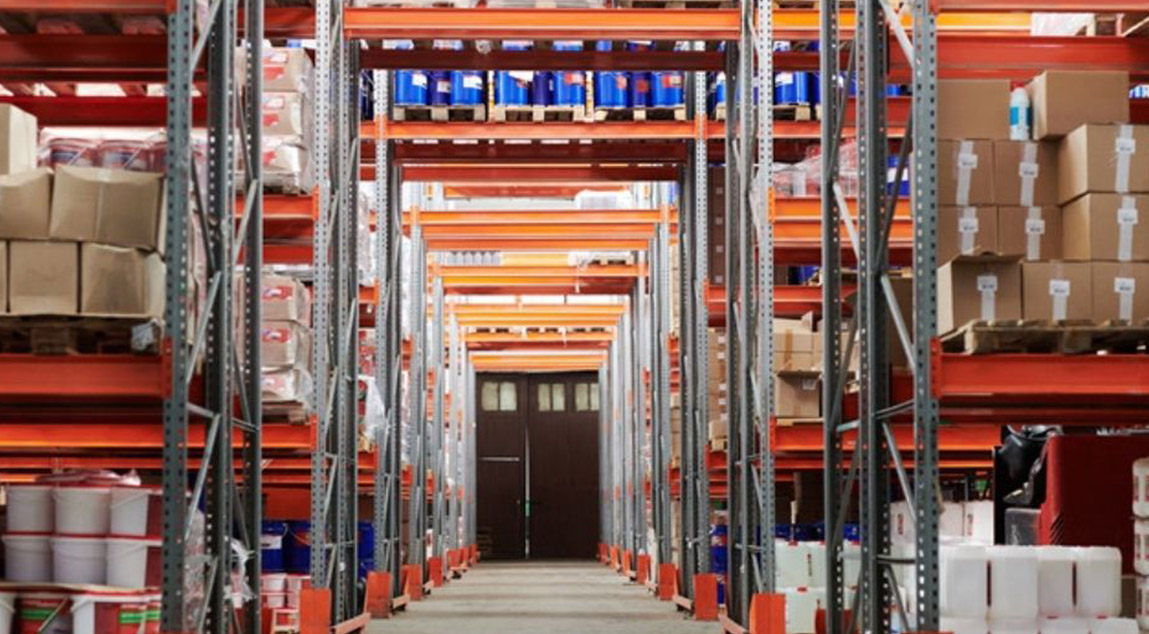 February 4, 2022Gloss Brick Sealer
February 4, 2022Gloss Brick SealerGloss brick sealer is a wonderful material for adding a brilliant shine to your brick slip wall feature.
Read More -
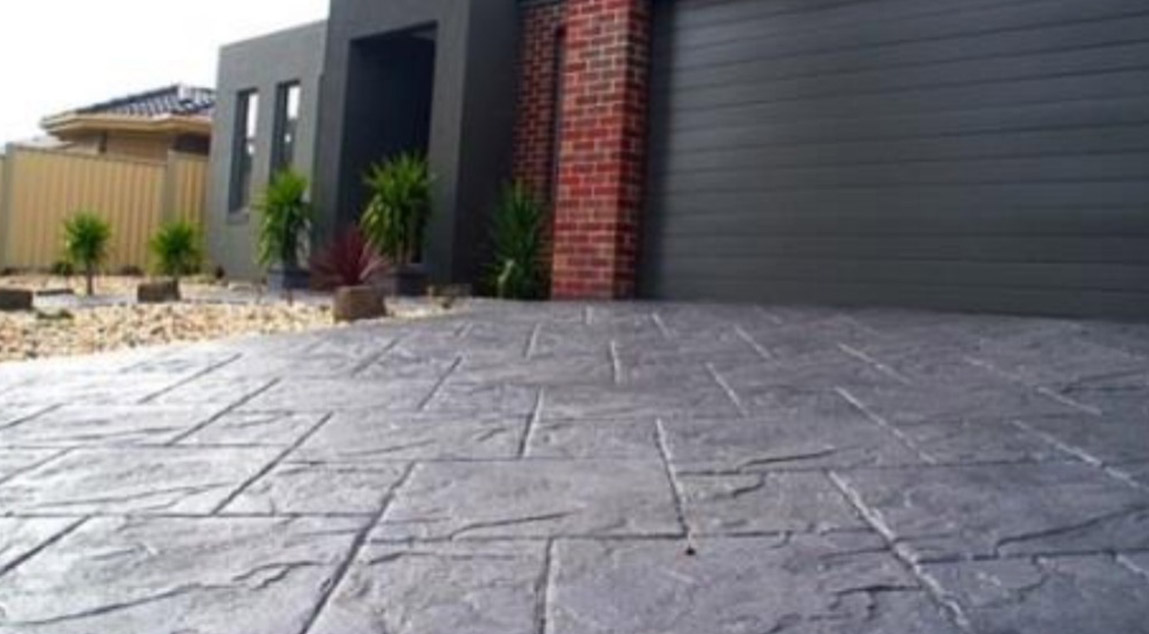 February 4, 2022Bluestone Concrete Sealer
February 4, 2022Bluestone Concrete SealerIn a broad sense, the term “bluestone” is sometimes used to refer to a variety of stones. It’s a marketing term rather than a geological one.
Read More
